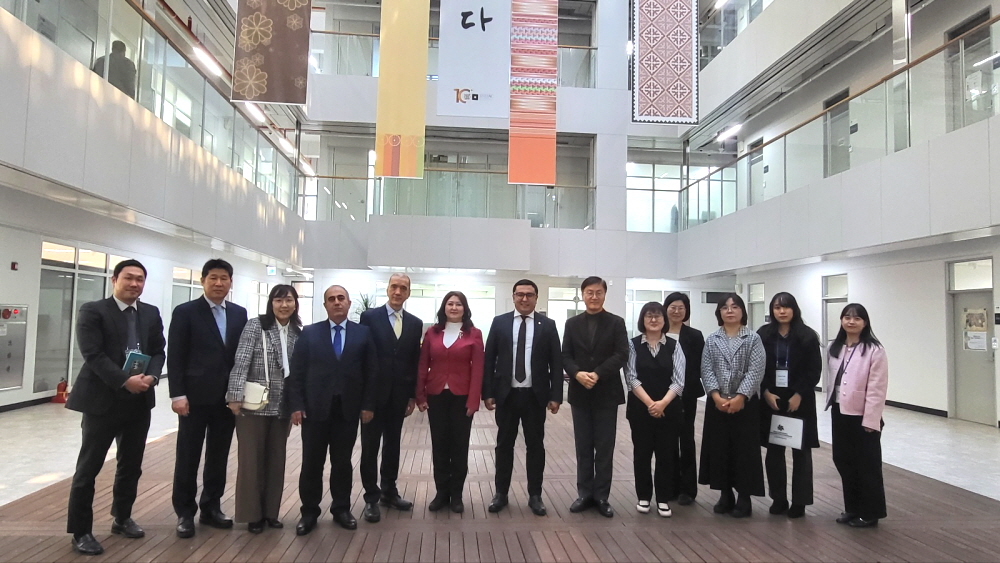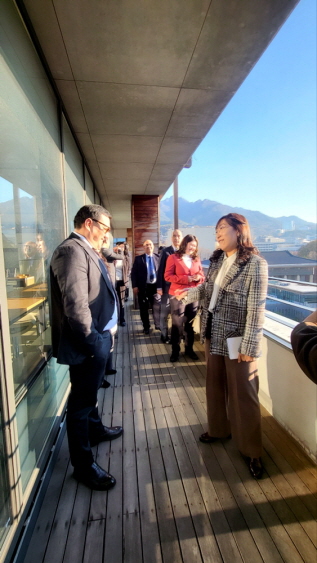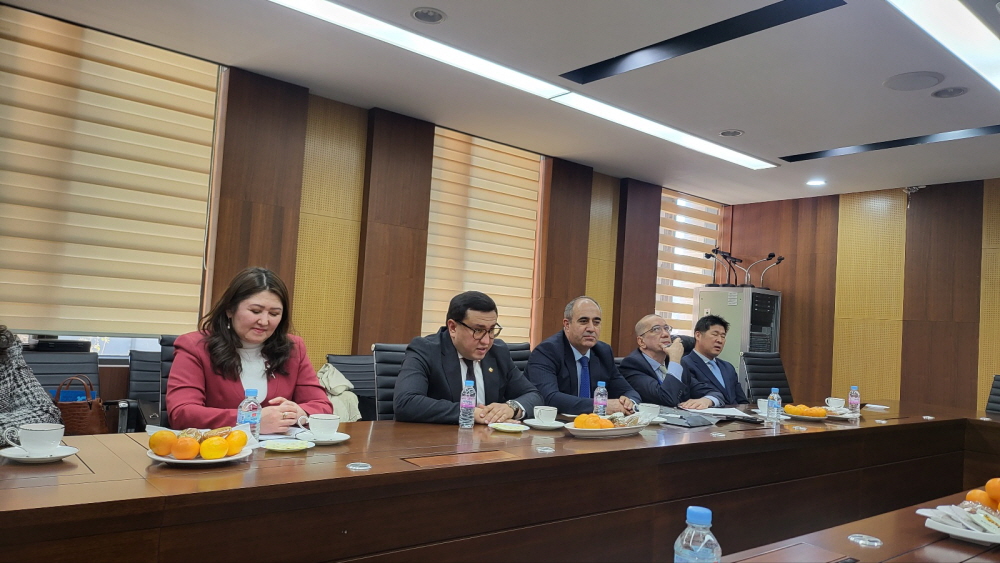[News] Directors of Institutes for Strategic Studies from 4 Central Asian Countries Visit SNUAC
On November 21st, 2023, the directors of national institutes for strategic studies from Kazakhstan, Kazakhstan, Tajikistan, and Uzbekistan visited SNUAC to discuss exchanges and cooperations among institutes. The visitors included Nazarbetova Assel, the deputy director of Kazakhstan Institute for Strategic Studies under President of the Republic of Kazakhstan; Aziz Kanatbek, the director of the National Institute for Strategic Studies under the President of the Kyrgyz Republic; Usmonzoda Khayriddin, the director of the Center for Strategic Research under the President of the Republic of Tajikistan; Kadirov Fanil, the acting director of the International Institute for Central Asia in Uzbekistan; and Eunyi Jeong, the deputy head of department at Korea-Central Asia Cooperation Forum of the Korea Foundation, along with three staff members. From SNUAC, Prof. Suhong Chae (Director of SNUAC), Prof. Beomshik Shin (Deputy director of SNUAC/Director of CECAS), Kayoung Ko (HK Research Prof.) and Ayoung Choi (Research fellow, CECAS) participated in the meeting.
The visitors are in charge of the institutes for strategic studies under the presidents in Central Asia. These institutes are the think tanks for researching the policy for major issues in politics, security, diplomacy, and economy in each of the Central Asian countries. Director Chae suggested that this meeting does not remain a formality but lead to actual effects, and called for joint efforts. Deputy Director Shin, who is a regional expert on Central Asia, emphasized that it is not Asia as the strategic object of powerful countries but the subjective formation of networks among Asian countries that is important. He explained that SNUAC is in the process of establishing the scholarly concept of ‘Mega Asia’ with such an objective, and suggested specific cooperation to this end.
The group of visitors from Central Asia revealed an interest in forming a cooperative exchange network with Korea in areas such as water resources energy, environment, and human and cultural exchanges. For the relations between Korea and Central Asia to further develop, the visitors emphasized that policy studies and the foundational studies on the regions by university institutes should harmoniously interact. In this sense, they showed an enthusiastic agreement with the meaning and timeliness of Mega-Asia studies conducted by SNUAC. The basis of cooperation among SNUAC and the four institutes for strategic studies in Central Asia has been prepared through this visit. It was agreed that exchanges would be activated through actual cooperation in the future.






